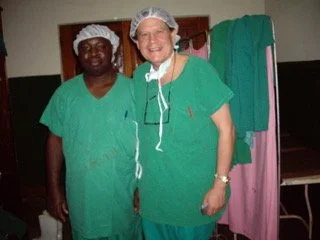
About Life for Mothers
Life for Mothers seeks to identify, address, and prevent complications that arise during pregnancy, labor, delivery, and postpartum, ultimately decreasing maternal and infant mortality rates.
A Doctor’s Passion Takes Him to Uganda. Listen now to the podcast episode.
Our holistic strategy addresses the full spectrum of health and social issues that limit women’s access to healthcare and that lead to maternal and neonatal deaths: from non-functioning health systems and impeded transport to lacking community awareness about health and family planning. We propose to create social change by promoting health-seeking behaviors in mothers, training community health workers (CHWs) to monitor patients, and encouraging male participation through education.
We aim to apply a new strategy to the problem of maternal/neonatal mortality. Traditional vertically-oriented approaches, which focus on individual diseases without integration, leave too many gaps in coverage. Therefore, we're focusing on providing comprehensive and horizontal preventative care:
By monitoring for and treating asphyxia, diarrhea, and respiratory ailments and by teaching mothers to detect symptoms in their babies, we will increase the number of neonates who survive past one month and beyond one year, thereby increasing the life expectancy of the country.
By providing outreach programs and counseling services, which encourage fathers to participate in disease screenings, antenatal care, and birth preparedness, we will help fathers become active partners in family planning and HIV prevention and enable women to seek care during pregnancy.
As we plan and implement our programs, we understand that community involvement and ownership are essential to achieving long-term success and sustainability.
Life for Mothers is a registered 501 (c) (3) non-profit organization in the US and is also registered in Uganda. LfM was founded and became incorporated in 2008.
Our Mission
Life for Mothers (LfM) is devoted to implementing sustainable, replicable, and cost-effective health projects to reduce maternal/neonatal mortality in developing countries. Key components to the Life for Mothers strategy are health system strengthening, women's empowerment, male and community involvement, education, and advocacy.

